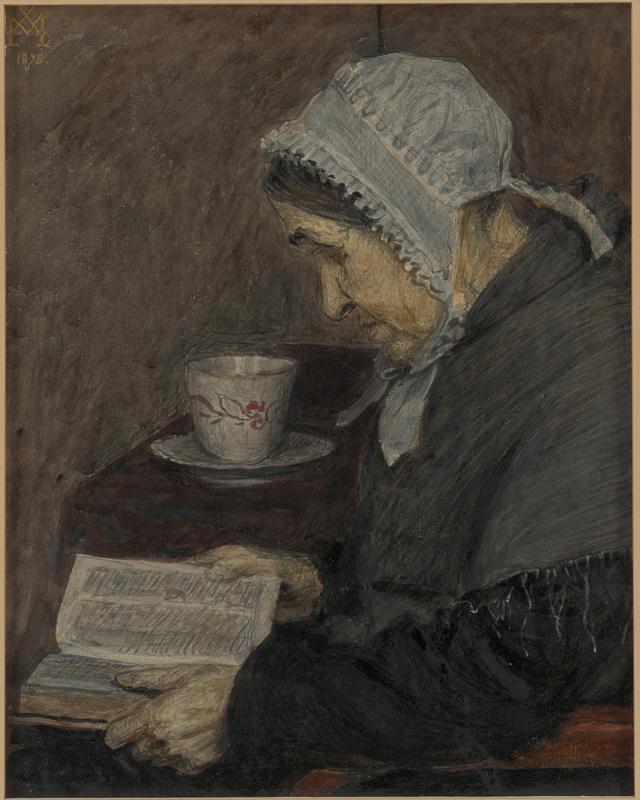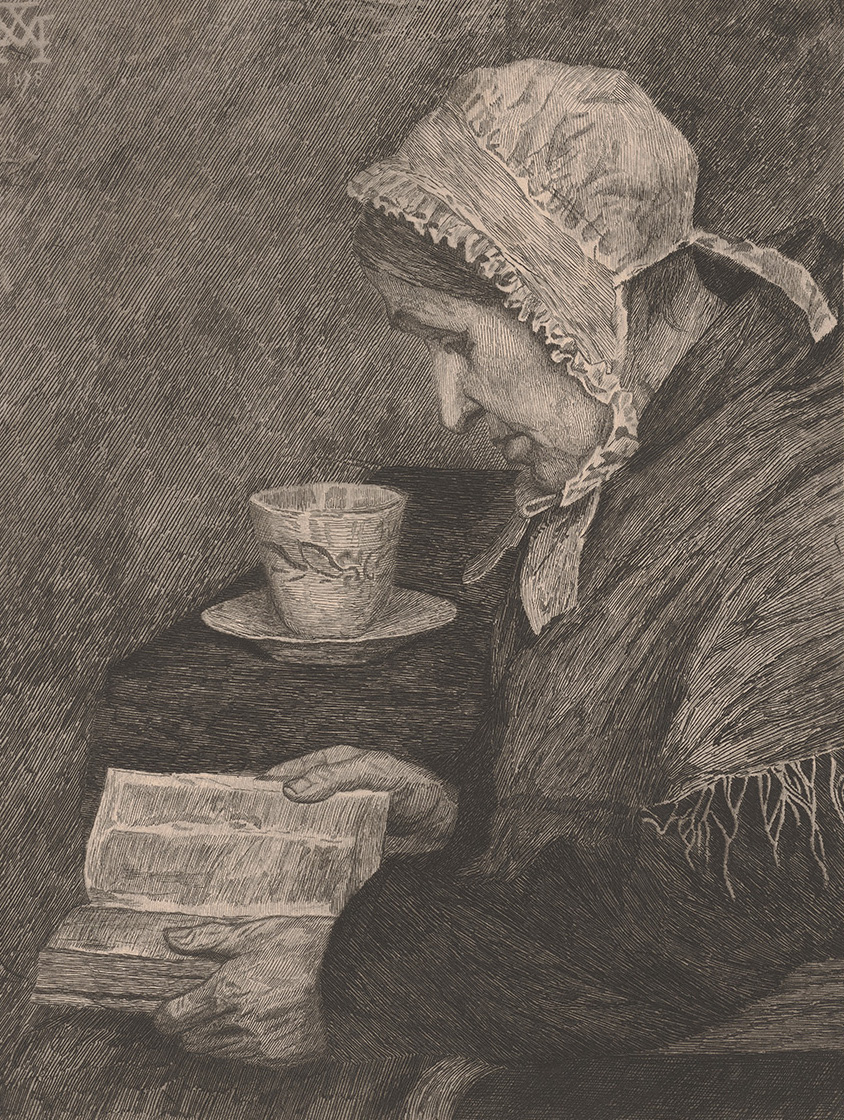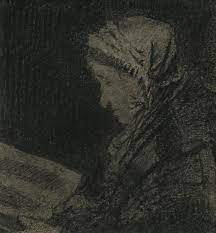
124. Xavier Mellery, Old Woman Reading Her Bible
| Artist | Xavier Mellery, Belgian, Laeken (Brussels) 1845–Brussels 1921 |
| Title, Date | Old Woman Reading Her Bible (Vieille femme lisant sa Bible), 1878 |
| Medium | Charcoal, ink, chalk, thinned oil |
| Dimensions | 11 3/4 × 9 1/2 in. (29.8 × 24.1 cm) |
| Inscriptions + Marks | Upper left: XM / 1878. |
| Provenance | Collection Monsieur Passelecq, Brussels; [Galerie Maurice Tzwern, Brussels, until about 1990; to Weisberg]; Yvonne and Gabriel Weisberg, Minneapolis |
| Exhibition History | "Reflections on Reality: Drawings and Paintings from the Weisberg Collection," Mia, 2022–23 |
| References | Vincent Vanhamme and Danielle Derrey-Capon, "Xavier Mellery: L’âme des choses" (exh. cat.), Van Gogh Museum, Amsterdam, and Musée d’Ixelles, Brussels (Zwolle, Netherlands: Uitgeverij Waanders, 2000), p. 118, ill. |
| Credit Line | Promised gift of Gabriel P. and Yvonne M.L. Weisberg, Minneapolis |


Xavier Mellery began his career as a devotee of Realism. He was especially taken with intimate scenes by François Bonvin (cat. nos. 25–31) and Théodule Ribot (cat. nos. 161–167). Mellery’s own images concentrated on simple folk, whom he recorded in the quiet of their homes. Like other realists, he was drawn to the qualities of humility and devotion, conveyed here by his subject’s absorption with her Bible.
This image of piety clearly spoke to Mellery’s contemporaries. In 1878 the Belgian printmaker Joseph Antoine Dujardin reproduced this drawing as an etching (fig. 1), which was then disseminated among the print-buying public. Having a composition broadcast this way proved to be an important early step in helping to establish Mellery’s name and career. Dujardin’s effort won him notice as well.1
A small sketch by Mellery that has appeared at auction shows a similarly posed woman but without the cup and saucer at her side (fig. 2). This sheet may have been Mellery’s point of departure in developing the present drawing.2 If so, his process involved enlarging, elaborating, and refining the image, possibly to create a figure more readily associated with the middle class.
GPW
Notes
That Dujardin won a prize is surmised from an inscription on the British Museum impression of the etching (inv. 1888,0612.596). We have not been able to determine the place or organizing body of the competition. ↩︎
Vincent Vanhamme and Danielle Derrey-Capon, Xavier Mellery: L’âme des choses (exh. cat.) (Zwolle, Netherlands: Uitgeverij Waanders, 2000), p. 118. The drawing has appeared twice at auction since that publication: Eve Enchères, Paris, October 31, 2008, no. 44; and De Vuyst, Lokeren, Belgium, October 27, 2012, part of no. 90. ↩︎